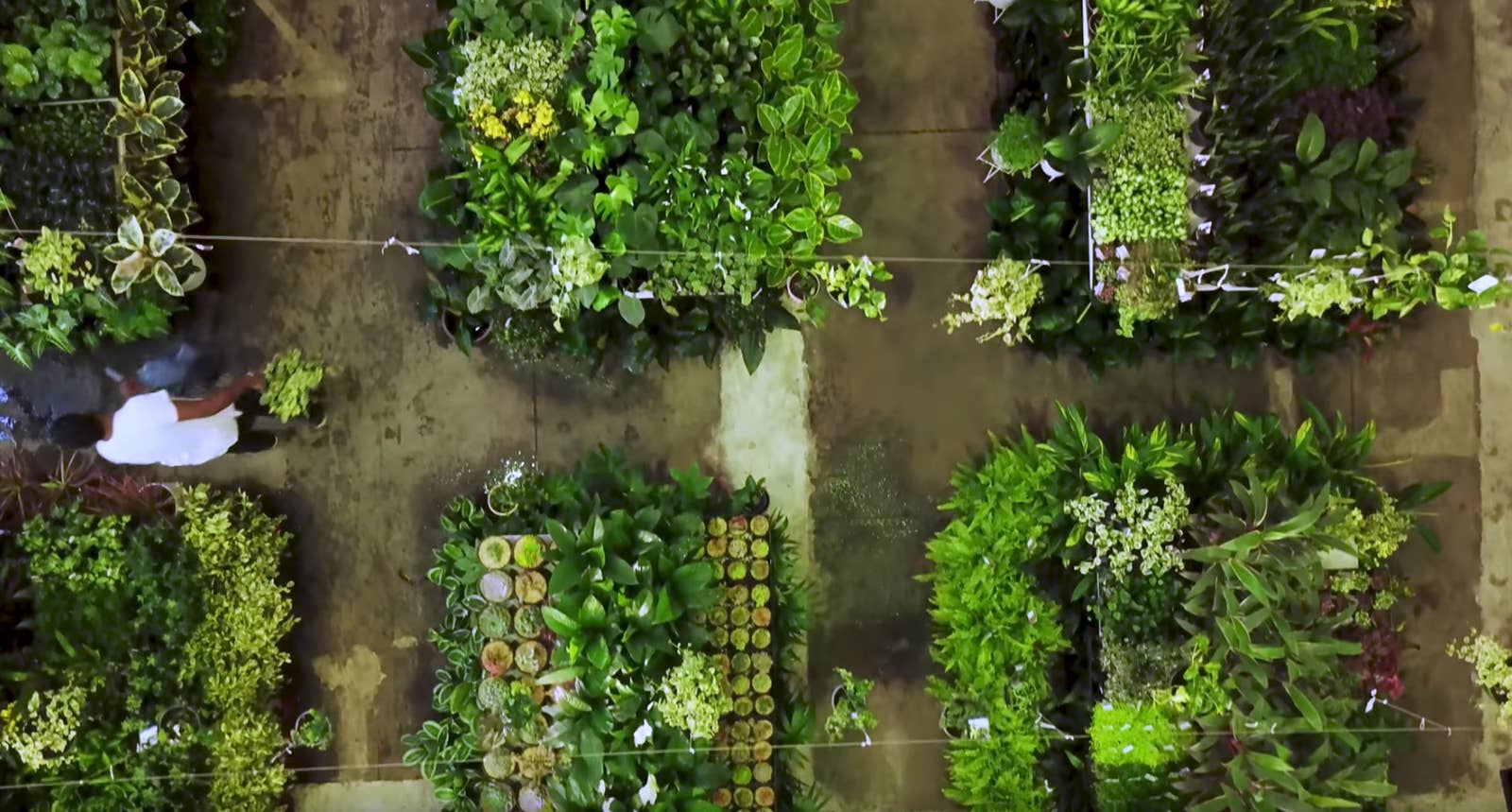
"I wouldn't say it's this negative, 'filling the hole in your heart' type of thing," says Maggie Dunleavy, the operations manager at Greener House Nursery. "Most of us in Australia did grow up with gardens and plants and backyards.
"When you see more and more places filled with concrete, when you have an apartment with no backyard, you realise you need plants. There's absolutely no reason you shouldn't."
Dunleavy is responding to questions about the rise of an emerging market in the horticultural industry: young people. As she speaks by phone to BuzzFeed News, she's busily preparing for her company's latest plant sale. Dunleavy says the sales, which are held in warehouses and event spaces over a weekend and attract hundreds of people, have grown in popularity since first being advertised on Facebook two years ago.
Greener House Nursery is one of many Australian companies recognising the opportunities in catering to this trend, and social media is the platform they're using to drive trade.
Dunleavy says Facebook is the best way for smaller operators to compete against their larger competitors, and encourages community and personal relationships. From a business perspective, there's no easier way to know how many peace lilies or Swiss cheese plants (monstera) you should order than watching the "attending" section of your Facebook Event.
Retailers can easily create a Facebook Event declaring, for example, a huge indoor plant warehouse sale with promises of rare plants, allocated shopping times, ticketing, and over 150 species determined to sate your green thumb.
Flowing through Facebook's newsfeed and being bounced by an algorithm into the feeds of friends, and friends of friends, these events can collect thousands of declarations of interest. And they're no longer just SALE! events, but community gatherings assigned evocative titles such as Springtime Splendour and Rumble in the Jungle.
One sale, hosted in a warehouse in the inner Sydney suburb of St Peters last weekend, had almost 20,000 people click "interested" and 3,000 people click "attending".

"We try to find a space that creates a nice jungle and brings everything to life," says Linda Vydra, of the Melbourne-based Jungle Collective. "We spend a lot of time researching for places."
The Jungle Collective, a horticultural / pop-up shop hybrid, first began as therapy. Vydra's partner was sick and unable to work for months, but found gardening therapeutic. The couple held their first sale in October, 2017, and now both have quit their jobs and have taken the sales across Australia.
Vydra has just returned from a trip around Queensland, meeting the growers they've been ordering from.
"It expanded quite quickly," she said of the business. "I think it created a sense of community and gives people a sense of connection. These days people are searching for something – a way to belong – something to care for and watch and grow."
Vydra says their customers are predominately female and in the 23-35 age bracket, with variations between the states. In Adelaide, there is a much more diverse age range with families and kids coming along.
A key to the rising wave of interest in plants on social media is Facebook Groups. Groups, which are usually controlled by one or a handful of administrators, create a closed off, members-only community within Facebook. These communities have no limit to their growth – other than that managed by the admin – and can often include tens of thousands of people. One placement of your sale event in the right group could be the difference between a few hundred and a few thousand people attending.
Having your event linked to in an interest-specific group such as Crazy Indoor Plant People Australia is less like an ad in a newspaper and more like a one-page spread in a niche, gardening-specific magazine that looks good on a coffee table. Everyone in that group cares, and everyone in that group wants to know.
On Instagram, the glossy photos once seen in magazines have found their way to the photo app's endless scroll. "Plant influencers" have emerged with tens of thousands of followers who eagerly seek out pictures of fern-filled bungalows and vine-draped apartments. One hashtag, #UrbanJungle, has over one million photos attached to it.
Horticulturalist and author Tovah Martin says interest in house plants is cyclical and last peaked in the '70s, when housewives became enamoured with ivy and devil's backbone. "I think the current cycle has a lot to do with people hunkering down," she told The Washington Post. "A house plant is therapeutic."
In New York, Summer Rayne Oaks, founder of Homestead Brooklyn, has almost 700 house plants in her 110-square-metre apartment. She has vertical gardens, self-watering planters, edible plants and re-enforced walls with added metal gutters.
"My plants give me a sanctuary to come home to," she told The New York Times.
As yet, inner city Australians haven't quite hit the heights of Brooklynites eagerly looking for a way to personalise their space, but they're on their way.
The rise of Generation Rent has resulted in thousands of millennial Australians having their eyes opened to green possibilities, and they're opening their wallets at plant warehouse sales in response. So much so that Jungle Collective's Linda Vydra says the country is facing a shortage of plants, with the growers struggling to keep up with a hungry market through the long winter months.
